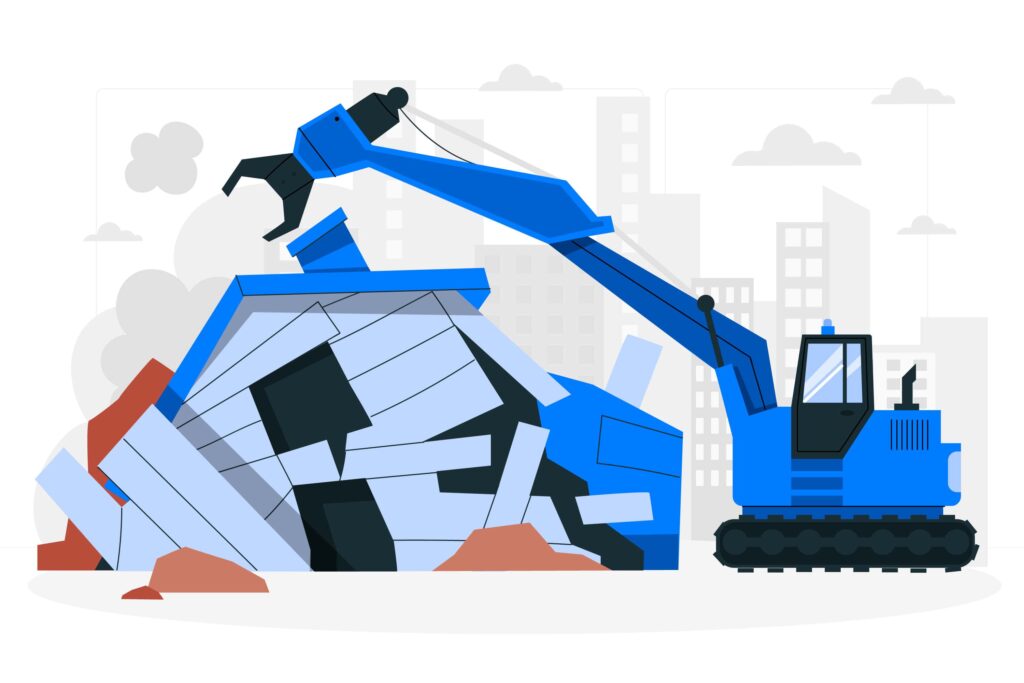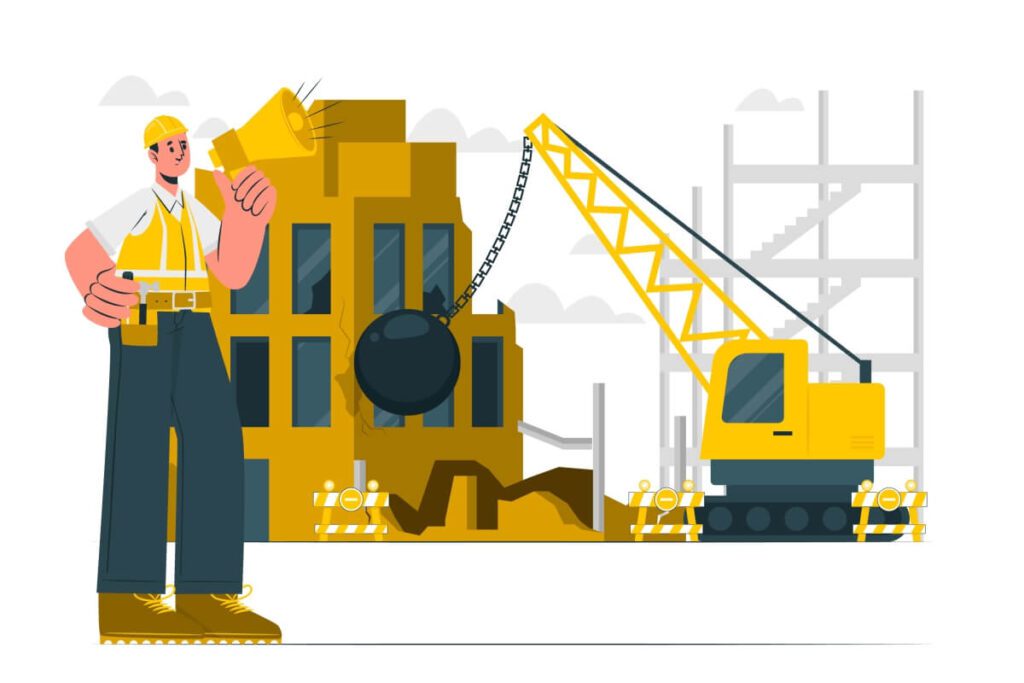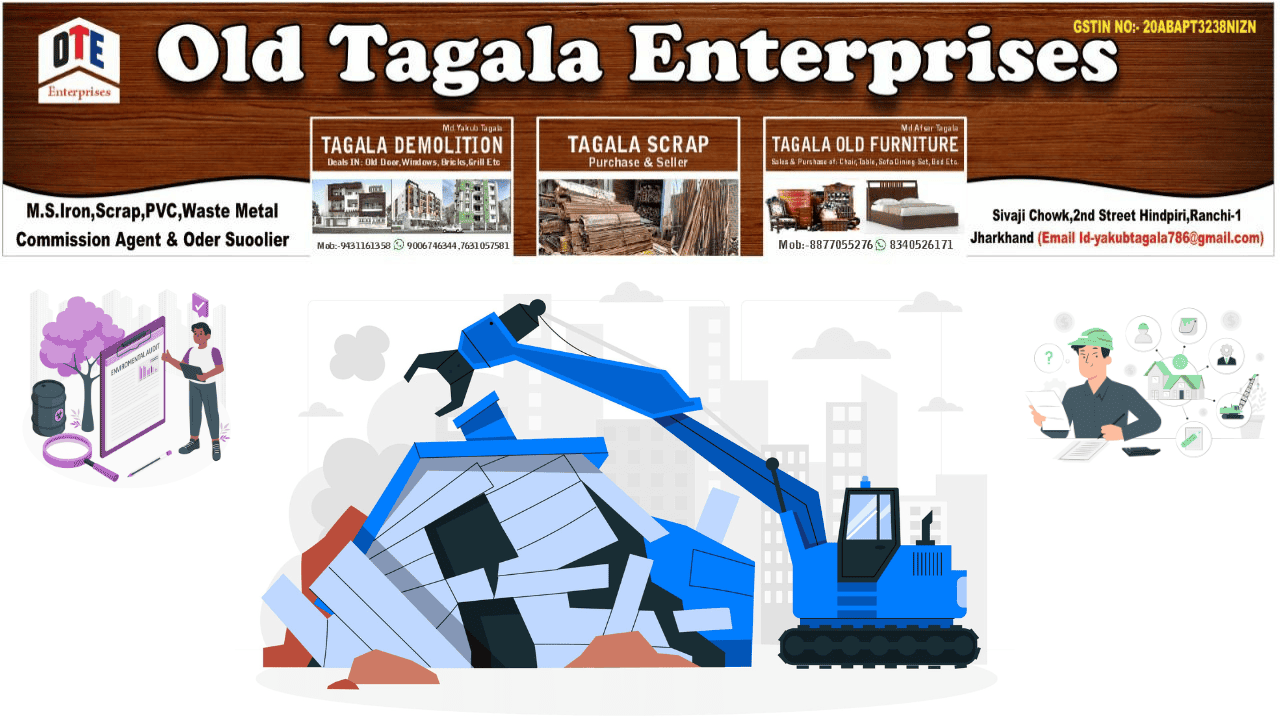Planning to demolish your house or old buildings? Discover the 10 crucial things you need to know before starting a demolition project, from permits to environmental impact.
Demolishing a house can be an exciting yet daunting task. Whether you’re planning to build a new home, repurpose the land, or simply start fresh, the process of tearing down a structure is far more complex than it may seem.

Before you dive in, there are several factors you need to consider to ensure a smooth, safe, and efficient demolition process. Here are 10 crucial things to know before demolishing your house.
1. Understand Your Reasons for Demolition
Before initiating any demolition project, it’s essential to identify your primary reason for tearing down the house. Are you planning to rebuild, sell the property, or clear the space for another purpose?

Your objective will influence the method of demolition, permits required, and the extent of preparation needed. For instance, a full demolition differs from a partial demolition where certain sections of the structure are preserved.
2. Obtain Necessary Permits and Approvals
Demolishing a house isn’t as simple as knocking down walls. You’ll need to obtain the necessary permits from your local municipality or building authority.

These permits ensure that the demolition complies with zoning laws, environmental regulations, and safety standards. Without the appropriate documentation, you could face hefty fines and delays.
Pro Tip: Check if your area requires special approvals for historic buildings or properties located in conservation zones.
3. Create a Detailed Demolition Plan
A demolition plan outlines the scope, timeline, and methods of the demolition. This plan is vital for coordinating with contractors, utility companies, and other stakeholders. It should include:
- A list of structures to be demolished.
- Safety measures.
- Equipment and manpower required.
- Waste disposal strategies.
A well-structured plan minimizes risks and ensures the project stays on track.
4. Hire Licensed Professionals
While DIY demolition might sound tempting, hiring licensed professionals is the safest and most efficient way to go.

Professional demolition contractors have the experience, equipment, and knowledge to handle complex tasks, including hazardous material removal, utility disconnections, and structural teardown.
What to Look For: Ensure the contractor is insured and has a proven track record of successful demolitions. Check for reviews and recommendations from previous clients.
5. Disconnect Utilities
Before demolition begins, you must disconnect all utilities, including electricity, gas, water, and sewer lines. This step is critical for preventing accidents, such as gas leaks or electrical fires.

Coordinate with utility companies to schedule disconnections and obtain confirmation that all lines are safely shut off.
6. Assess and Handle Hazardous Materials
Older homes often contain hazardous materials like asbestos, lead-based paint, and mold. These materials pose serious health risks if not handled properly.

Conduct a thorough inspection to identify any hazardous substances and hire certified abatement professionals to remove them safely.
Important Note: Many local regulations mandate proper disposal of hazardous materials to protect the environment.
7. Salvage Valuable Materials
Demolition doesn’t mean everything must go to waste. Salvaging reusable materials like wood, bricks, windows, doors, and fixtures can save money and reduce waste.

Many demolition contractors offer deconstruction services, which focus on carefully removing and preserving valuable components.
Eco-Friendly Tip: Donate salvaged materials to local charities or recycling centers.
8. Consider Environmental Impact
Demolition generates significant debris and waste, which can harm the environment if not managed responsibly.

Develop a waste management plan to ensure proper disposal and recycling of materials. Some municipalities offer incentives for recycling construction waste, so check local policies.
Sustainable Practices: Opt for green demolition methods that minimize environmental impact, such as manual deconstruction or using eco-friendly equipment.
9. Prepare Your Neighbors and Community
Demolition can be noisy, dusty, and disruptive, which may affect your neighbors and the surrounding community.

Notify them in advance about the project’s schedule and duration. Taking this step shows consideration and can prevent potential conflicts.
Pro Tip: Use dust control measures, such as water sprays or protective barriers, to minimize air pollution.
10. Budget for Unexpected Costs
Demolition projects often come with unforeseen expenses, such as additional permits, hazardous material removal, or structural surprises. Allocate a contingency fund to cover these unexpected costs and avoid financial strain.

Budget Checklist:
- Permit fees.
- Contractor charges.
- Waste disposal costs.
- Hazardous material handling.
Additional Tips for a Successful Demolition
- Check Property Boundaries: Ensure the demolition doesn’t encroach on neighboring properties.
- Secure the Site: Install fences and warning signs to keep unauthorized individuals away from the site.
- Document Everything: Take photos and videos of the house before, during, and after demolition for reference and legal purposes.
- Plan for Site Cleanup: Ensure the site is cleared and leveled after demolition to prepare for the next phase of construction or sale.
Conclusion
Demolishing a house is a significant undertaking that requires careful planning, professional expertise, and adherence to legal requirements.
By understanding these 10 critical factors, you can ensure a safe, efficient, and stress-free demolition process.
Whether you’re tearing down to rebuild your dream home or repurpose the land, preparation is key to a successful project.
Ready to get started? Consult with licensed demolition contractors, create a detailed plan, and take proactive steps to ensure a smooth journey from start to finish.
With the right approach, your demolition project can be the first step toward a fresh and exciting future.
Other Interesting Posts To Read:
Deconstruction vs. Demolition: Making the Right Choice
Sustainable Demolition: Reducing Waste and Environmental Impact
The benefits of donating unwanted items to charity or non-profit organizations
